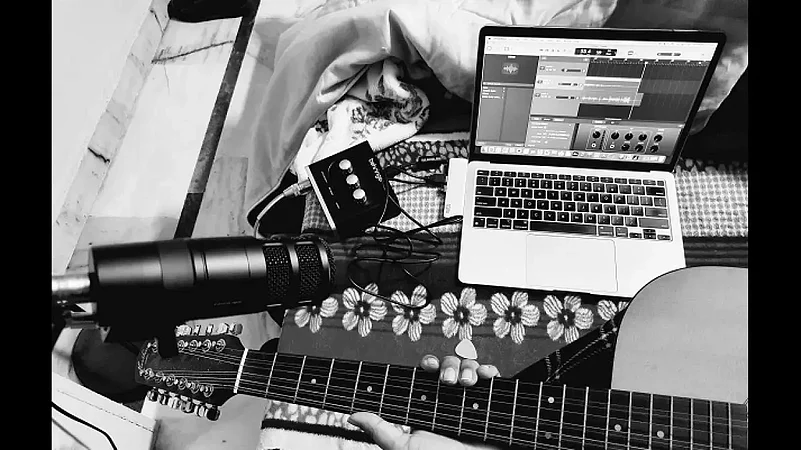Lately, there has been an increasing demand for a good podcast microphone as more and more content creators explore the audio medium to reach their audience.
Picking the right microphone has become a challenge for some as the market is flooded with several of them.
I reviewed Audio-Technica's AT2040 podcast mic for more than a month and used it for several purposes, including recording my guitar with GarageBand, I'll share how the mic fares overall and if you could consider it for podcasts.

The AT2040 is well built and quite heavy at nearly 600 gm with all-metal construction, something that its compact size won't indicate at first glance.
But I'd say it looks premium and minimal, making it look really attractive on your work desk.
It’s a dynamic microphone with a hypercardioid pickup that keeps the sound focused on the user’s voice and helps to minimize unwanted room noise. It uses a professional-grade XLR output for versatility.
To further reduce any unwanted noise, the AT2040 has a specially designed integrated shock mount that dampens knocks and vibrations that might be transmitted through a mic stand, boom, or mount.

Additionally, the AT2040 has a multistage windscreen that combines a non-woven filter with foam mesh to provide effective internal pop filtering, enabling close-up use.
To break this into simple language, it should offer quality recording and keep the surrounding noise at bay, so that it just picks up your voice and as far as I used it, it's pretty good and it manages to suppress surrounding noise.

Another benefit is it also rejects clanking noise from the keyboard.
This microphone delivers a warmer sound overall, something that suits the way I like it.
Audio-Technica AT2040 seems like a fine mic for podcasting, streaming, and content creation.
That said, it still features a professional XLR output which means you would also need an audio interface, and that also means you will not have the ease of plug-and-play that USB microphones offer.
Keeping convenience aside, XLR output is usually preferred for quality recording and while USB microphones do manage to match that up to an extent, the former always has an edge.
As I said earlier, you get crisp and warm recording and I managed to record a guitar piece using this mic pretty comfortably.
And I do feel that even singers can also consider it, not just streamers and podcasters.
But then arises the question, is it expensive?
Priced at Rs 9,500, I would say it's not too expensive and for someone looking for well built and great-sounding mic, this just could be a good pick.
There is a slight hassle with XLR output and audio interface, but if you have a set desk, then you can figure it out quickly.































